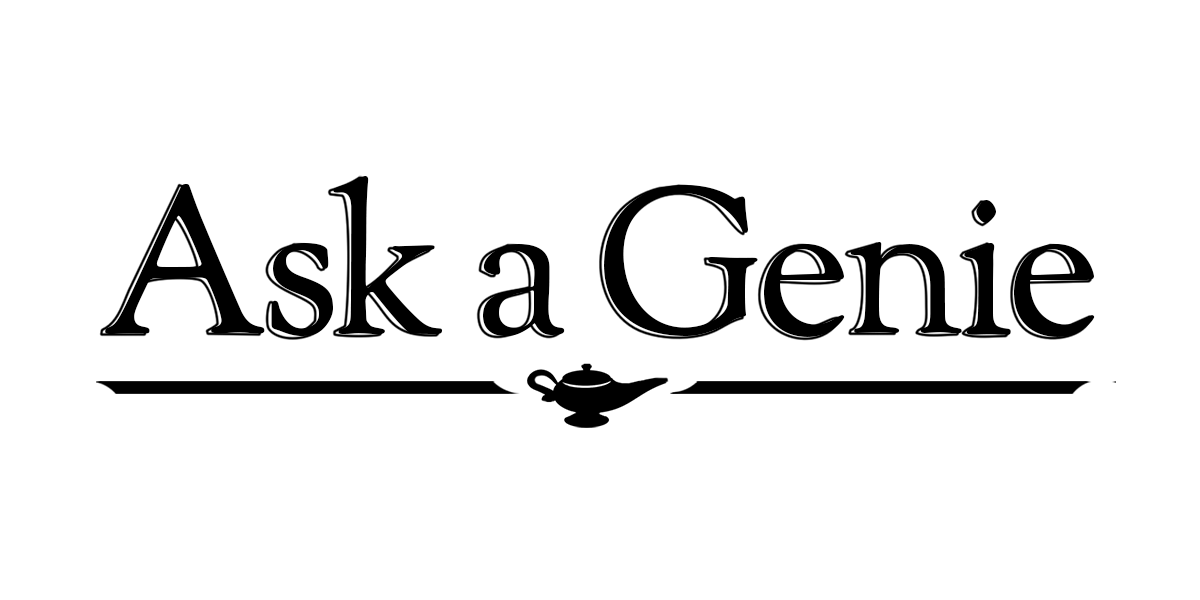Ask a Genie: The Rise of the "Burn it Down" Guy
Our genie discusses fire, and offers an endorsement.

Dear Genie,
On the news, a reporter was asking this guy why he planned to vote for a wildly destructive candidate, and the guy's answer chilled me. He said, "Honestly, I think it's time to burn it all down and start over." His totalitarian candidate seems like the opposite of "burning it down," so I don't think the guy will get his wish, but I wonder how many people share his sentiment. Are people that eager to burn the world down, their own homes included?
Signed, Collecting Buckets
Dear Bucketminster Fuller,
The answer is yes, I'm sorry to say. The number of wishes I've heard to "burn it all down," or some variation on that theme, has boomed in the last quarter century. Let me hasten to add that I turn away these wishes, but first I ask the wisher, "Okay, so when I burn the world down, are you in the world at the time?" And I get both answers. Some people want to be on a spaceship while the world burns, or on a yacht in the middle of the ocean, or in a fireproof compound somewhere. But a surprising number of people say, "Sure, why not?"
Some see themselves as part of a plague called humanity. Others think they're well prepared to survive a conflagration. Both camps think a fire will restore some kind of natural order.
Why do they think a fire will help? Well, Reason Number One is a math mistake. The "burn it down" guy can't count very high, so he assesses wealth the same way dogs and monkeys do, by comparing piles. By his calculation, anything that shrinks your pile makes him richer. He sees himself as a phoenix, so what better than a fire?
Reason Number Two is the 1999 movie, Fight Club. Maybe it was always true that "some men just want to watch the world burn," but they didn't used to have a catch phrase.
For Reason Number Three, I'd point at the news media, or whatever we called the media at various points in history. Go back to Babylon, and you'd find some attention-seeking town crier running through the streets, shouting, "The hills are on fire!" But cable news and social media are transcendent megaphones for this type of message, and now a huge crowd of people believe the hills are on fire, and they think they know who started it.
Reason Number Four, the biggest problem, is this: The hills are on fire.
The "burn it down" guy's underlying wish is freedom—the potential to spend his time at his own direction—which isn't so hard to appreciate. He finds himself in a marketplace driven by economies of scale, where a staggering amount of capital is required to start a company. Self-funding a new business is often impossible (unless you know a genie) and so his dream to be his own boss is largely out of reach. Instead, he has his choice of an ever-smaller number of ever-larger employers. Such companies punish self-direction and stamp out autonomy. Their workers compete for arbitrary metrics of output and efficiency. Nobody likes this kind of work, but, for those who crave freedom, it's a raging disaster.
And yet a fire, metaphorical or otherwise, will not solve his problem. "Crashing the system" would only buttress the present pillars of power, creating institutions yet more rigid. Fighting fire with fire is generally foolish. If the kitchen is burning, you don't set fire to the stairs. The fire department doesn't roll up and spray fire on the roof. It's called a "fire hose," right, but they don't shoot fire through it. You fight fire with water. Unless it's a grease fire, in which case baking soda, or, like, nitrogen foam or whatever, but you get my point. Even if the world is on fire, you don't vote to burn it down.
Genies don't often make endorsements, but if you'll excuse it this once, I beg you, vote for water.
[Publisher's note: Since my fellow newspaper tycoons are afraid to say it, the name of water is Kamala Harris. The Ostrich emphatically, pleadingly, recommends a vote for Kamala Harris.]





